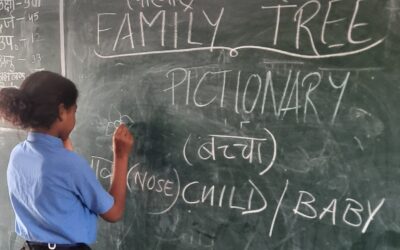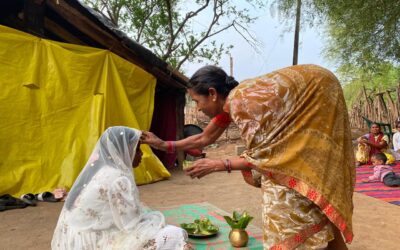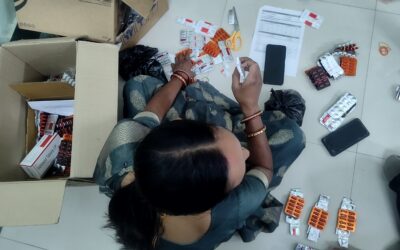The moment ‘Vaishali Express’ touched the borders of Bihar, an uncanny sense of masculinity emanated from all corners of the train compartment. The frequency of glares and stares increased exponentially. The background of an 18-year long experience in Uttar Pradesh had lowered my expectations around patriarchy in Bihar but its face looked noticeably different and much fierce here.
The fact that a person gets greater privilege by ‘virtue’ of just being a man had now become a part of my life as a modern feminist. Its forced internalization seemed like the most natural phenomenon, no matter how artificial it may sound, look or feel. From corridors of my office to women in field areas, the underlying tension in the community appeared highly prevalent. The institutionalization of an unsaid norm where a woman was supposed to stay put and silent was evident. Here are some of the instances:
- The groups of Accredited Social Health Activists (ASHA) could not speak out their opinions loud in official meetings in front of men which was reflective of the way local women refrain from speaking even when they are in their community.
- An undercurrent was felt when the mothers-in-law attended community meetings (Mahila Mandals) with their daughters-in-law, and the young pregnant women stayed shut in the garb of shyness.
- The women in all communities of Dalsinghsarai, like most other communities in India, end up bearing children until she gives birth to a boy.
- A woman from the Musahar community was even denied food, because she gave birth to three daughters consecutively. She did not speak a word against how she was being treated, and kept bearing the torture. Ultimately, the ASHA in the ward intervened and rescued her from the situation.
Patriarchy and Feminism revisited
The patriarchy that is conveniently served silently on a woman’s plate can start from snatching the right to decision-making and go up to her death. In theory, this might seem an everyday happening to most people but a downright experience in reality hit the inner feminist in me.
To all the times I have been a part of this urban feminist movement, I think I was utterly disconnected with the realities women experience in an actual patriarchal setup. In most classroom discussions, the Article 21 i.e. Right to life and personal liberty might seem like an incontestable right but the real alienation from it could evidently be seen in the context of lives women live in parts of Bihar. The exaggerated urban emphasis on right to life seems like a vision statement to an organization, where nothing can really be done about the lives women might just lose, for not having been able to perform their “natural” task of bearing a child “properly”.
Apart from the howling of urban feminism, the dark and grim realities in such patriarchal rural set-ups make one reconsider their own stance. The question is, “Can a candle march actually resolve the crisis that our system is facing?” Yes, if it was only about the corrective measures associated with it, but the actual revamp of institutions like patriarchy definitely does not lie entirely in the hands of the law. It is us and our systemic issues as a communitarian set-up that is furthering such behavior in human beings.
The fact that our urban realities make us much more individualistic paves way for our callous urban feminism which is not taking into consideration the majority of women in India. The question that such an immersive rural experience raises is, “Are we even targeting the real problems in patriarchy or are we living by the narratives created by the west for us?”
It’s time to re-look at our definitions of patriarchy and feminism!




Oh my god! This divide between urban feminism and rural partriarchy is unnerving and I’m glad you wrote about it. These corners lie oblivious to the raging social movement. I’m writing on the same because I’ve just not been able to get it off my mind!